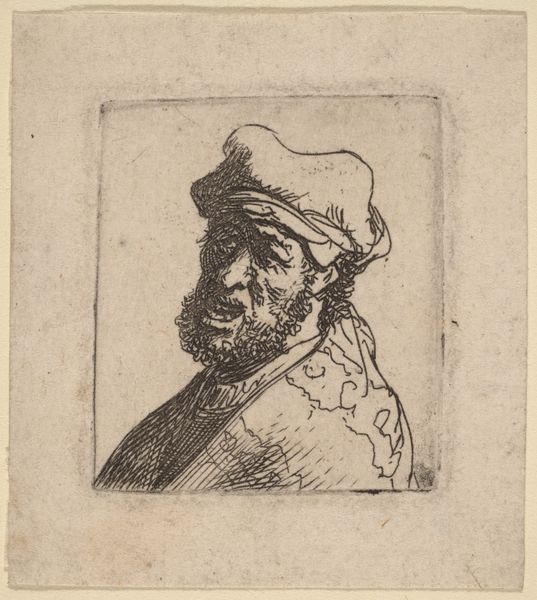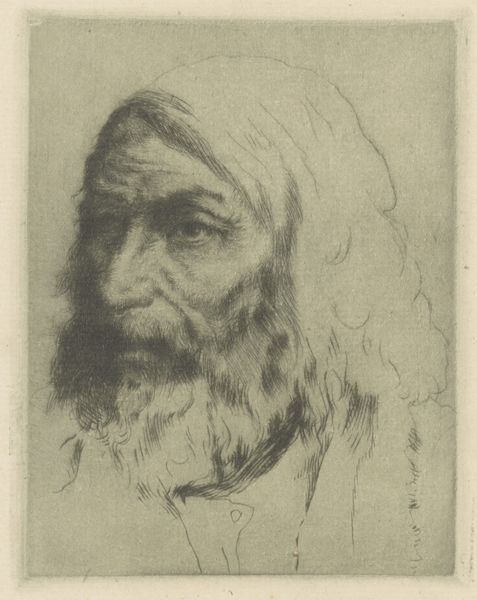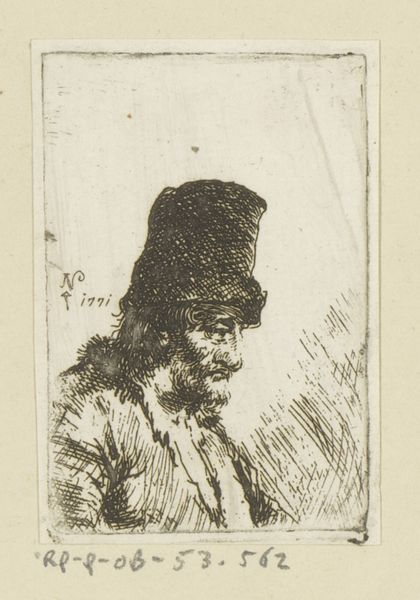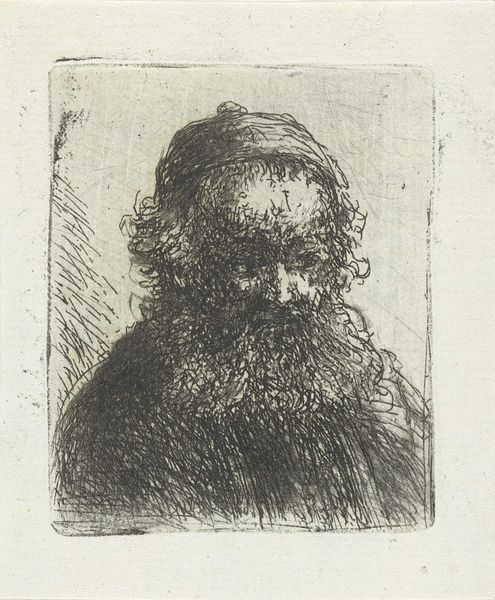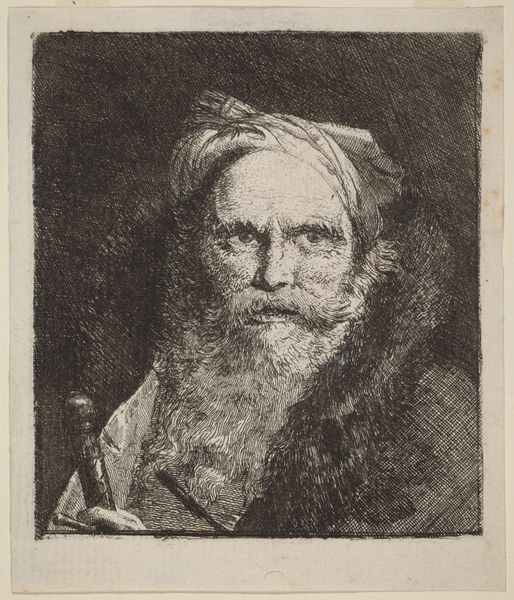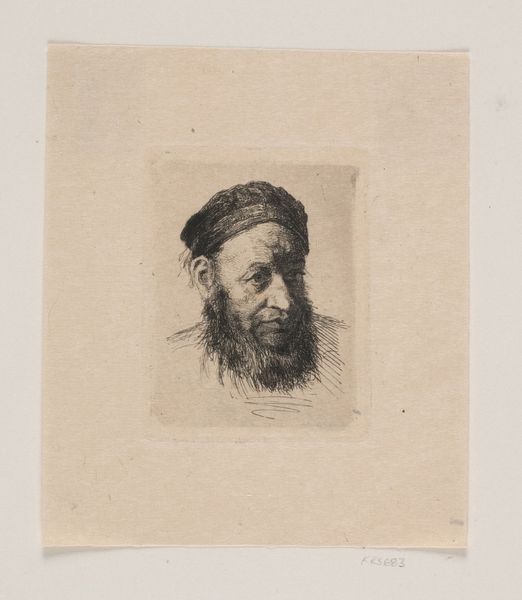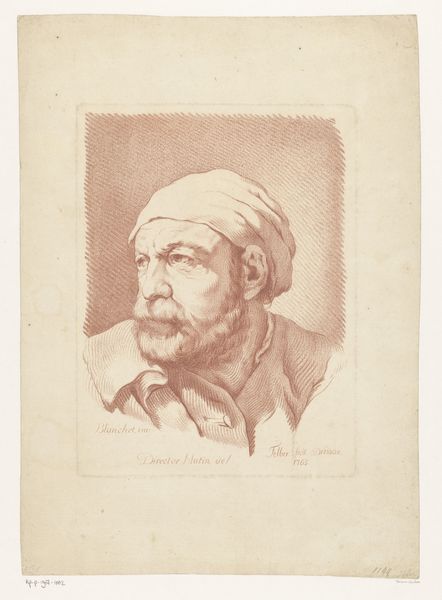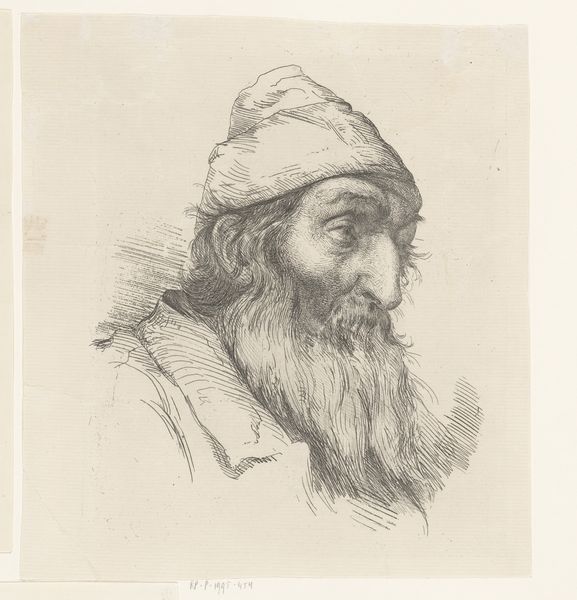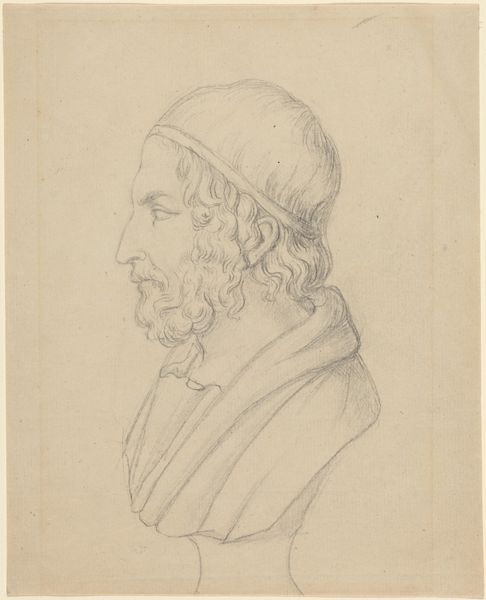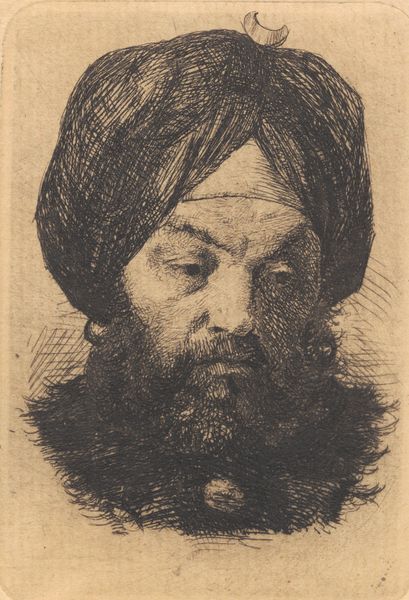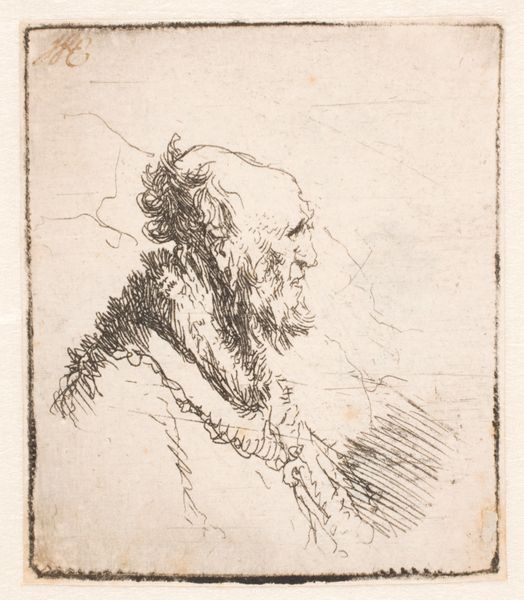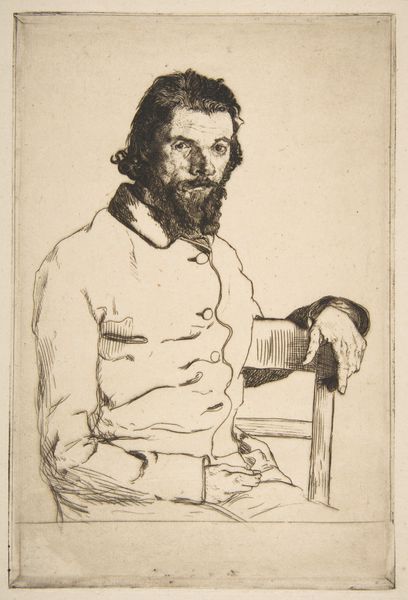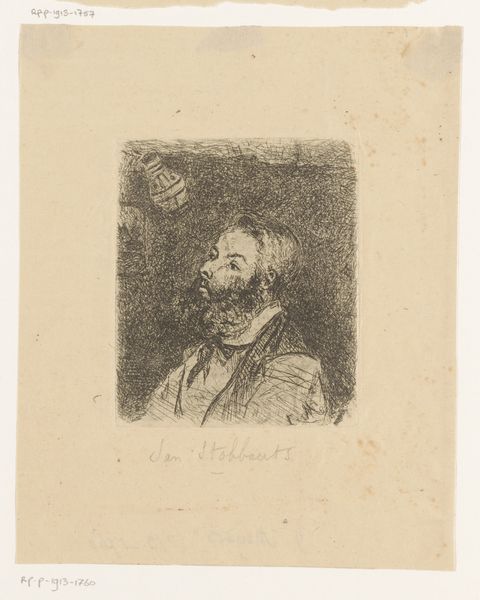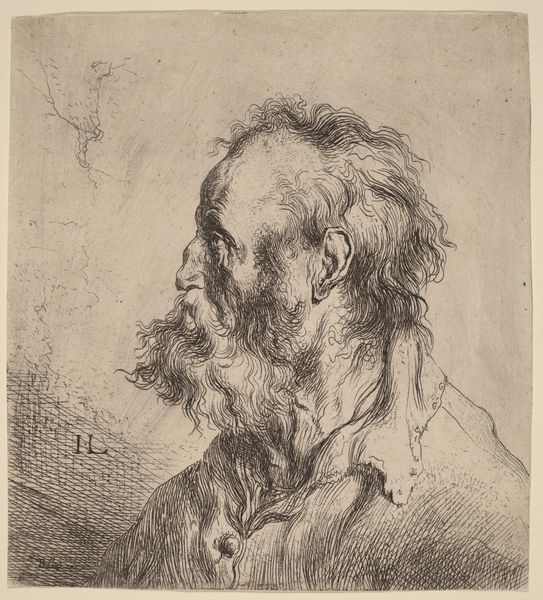
drawing, ink
#
portrait
#
drawing
#
baroque
#
figuration
#
ink
Copyright: Public Domain
Editor: Here we have a drawing titled "Bärtiger Mann mit einer kleinen Mütze," or "Bearded Man with a Small Cap," by Guercino. It seems to be an ink drawing. There's a directness in his gaze that's quite arresting. How do you interpret this work, especially considering its time? Curator: That directness is key. While it's technically a portrait, it transcends simple representation. We have to ask ourselves, who was Guercino portraying, and why? The Baroque period saw an emphasis on emotion and drama. Does this drawing subvert, perhaps even critique, societal structures and ideals? What do you think? Editor: Well, the man doesn't look particularly idealized. There’s a certain roughness…even weariness perhaps? Curator: Precisely! It challenges the traditional glorification of the elite. Guercino might be drawing attention to the everyday person, their inherent dignity and struggles. Consider the use of ink – it’s raw, immediate. Could this be seen as an act of rebellion, amplifying the voices of those often marginalized? Editor: So you’re saying the medium itself plays a part in the political statement? Curator: Absolutely. The accessibility of drawing, versus painting, connects with wider populations and a form of political commentary during the Baroque era. How do you see it fitting within broader conversations about identity and representation? Editor: That’s fascinating! I hadn't considered the act of portraiture itself as potentially political. Curator: Art offers powerful insights into identity and social structures when viewed through a historical lens. Editor: I will certainly look at Baroque portraiture with fresh eyes. Thank you!
Comments
No comments
Be the first to comment and join the conversation on the ultimate creative platform.
